Atheists tend to have some questions for their believing friends that weigh on their minds.

These aren’t gotcha questions or attempts to debate you — theists are (for the most part) genuinely curious to understand your perspective better. I know religion is a sensitive and deeply personal topic, but this is all about having an open dialogue to understand one another’s unique beliefs better.
1. If God is all-powerful and all-loving, why does suffering exist?
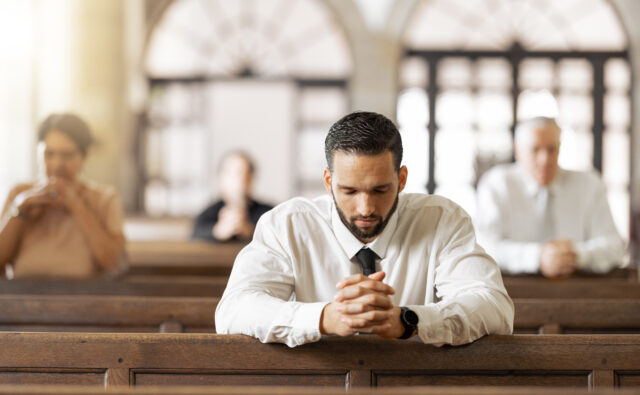
This is the age-old question that has stumped philosophers and theologians for centuries. If God is omnipotent and benevolent, why do bad things happen to good people? Why do children get cancer, why do natural disasters destroy lives, why do people endure war and famine and abuse? It’s hard to reconcile the idea of a loving God with the reality of human suffering. How do you make sense of it in your belief system?
2. How do you know your religion is the “right” one?
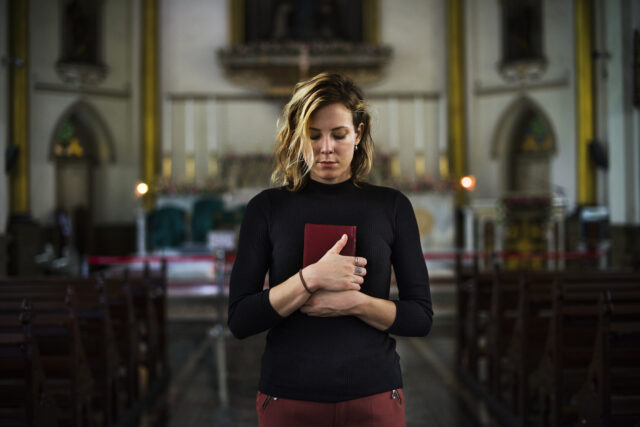
There are thousands of religions in the world, each claiming to have the ultimate truth. How can you be sure that yours is the correct one? Is it just a matter of faith, or do you have tangible evidence that sets your beliefs apart from all the others? Have you explored other religions with an open mind, or have you always just accepted the one you were raised in? It’s a big claim to say your religion is the one true path.
3. Why does God require worship and praise?
 Source: Unsplash
Source: Unsplash Many religions teach that God demands worship, praise, and devotion from humans. But why would an all-powerful, all-knowing being need or want that from us? It seems strange for a supreme creator to be so insecure or egotistical. If God is perfect and self-sufficient, why does he require constant affirmation from his creations? Couldn’t he just be content knowing he’s God, without needing us to stroke his ego all the time?
4. How can you reconcile scientific evidence with religious beliefs?
 Source: Unsplash
Source: Unsplash Science has made incredible discoveries about the natural world, from evolution to the Big Bang to the age of the earth. Many of these findings directly contradict religious teachings. How do you reconcile your faith with scientific evidence? Do you reject science outright, or do you find a way to make it fit with your beliefs? It seems like a difficult cognitive dissonance to maintain.
5. Why would God create humans with critical thinking skills and then punish them for using them?

Many religions discourage questioning or doubting religious teachings, and some even punish apostasy or heresy. But if God gave us the ability to think critically and reason, why would he then punish us for using those skills to examine our beliefs? It seems contradictory and unfair. Shouldn’t a loving God want us to seek truth and understanding, even if it means questioning religious dogma?
6. How can you be certain that your religious experiences aren’t just psychological phenomena?
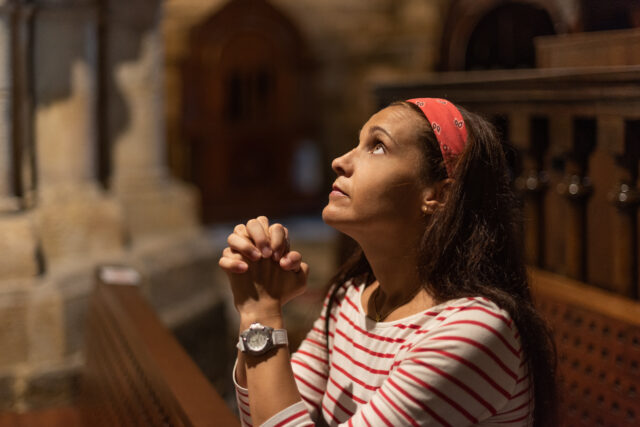
Religious believers often cite personal experiences, such as feelings of divine presence, answered prayers, or spiritual visions, as evidence for their faith. But how can you be sure these experiences are actually supernatural and not just psychological phenomena? The human brain is complex and can generate all sorts of perceptions and emotions. Isn’t it possible that what you interpret as God is really just your own mind playing tricks on you?
7. Why does God allow people to be born into circumstances where they’re unlikely to ever hear about Him?

If God wants everyone to know and worship him, why does he allow so many people to be born into cultures or regions where they may never encounter the “right” religion? For example, a child born into a remote Amazonian tribe may never hear about Christianity. Is it fair for God to condemn that child to hell for not believing in something they never had a chance to learn about? It seems unjust.
8. How do you make sense of the contradictions and inconsistencies in religious texts?
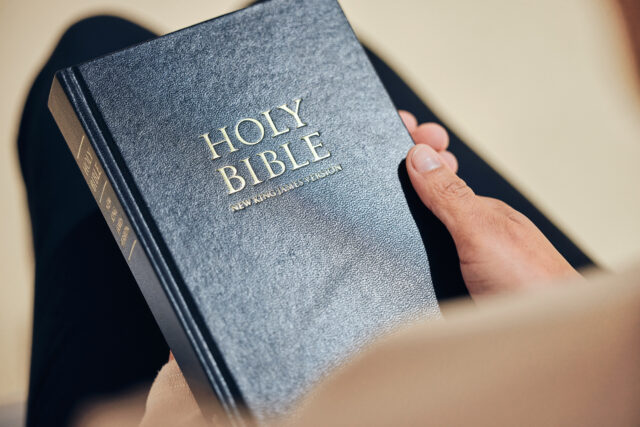
Religious texts like the Bible or Quran are often held up as the inerrant word of God, but they’re full of contradictions, inconsistencies, and passages that seem to condone terrible things like slavery, genocide, and rape. How do you reconcile these problems? Do you just ignore them, or do you have a way of interpreting them that makes sense to you? It’s hard for me to take a text seriously as divinely inspired when it has so many issues.
9. Why do you think your personal beliefs about God are more valid than anyone else’s?
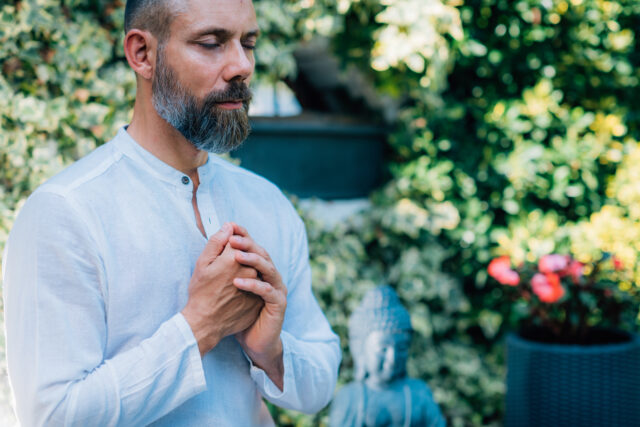
Even within a single religion, there are countless different interpretations and beliefs about the nature of God and the right way to practice the faith. How can you be sure that your particular beliefs are the correct ones? Isn’t it arrogant to assume you’ve got it all figured out when so many other sincere believers come to different conclusions? What makes your version of God more valid than anyone else’s?
10. If God has a plan for everyone, doesn’t that negate free will?

Many religious people believe that God has a specific plan and purpose for every human life. But if that’s true, doesn’t it mean we don’t really have free will? If God is orchestrating everything behind the scenes, pulling the strings of fate, then how can our choices be truly free? It seems like a contradiction to say we have free will but also that God has predestined everything that happens to us.
11. Why does God require intermediaries like clergy or prophets to communicate with humans?
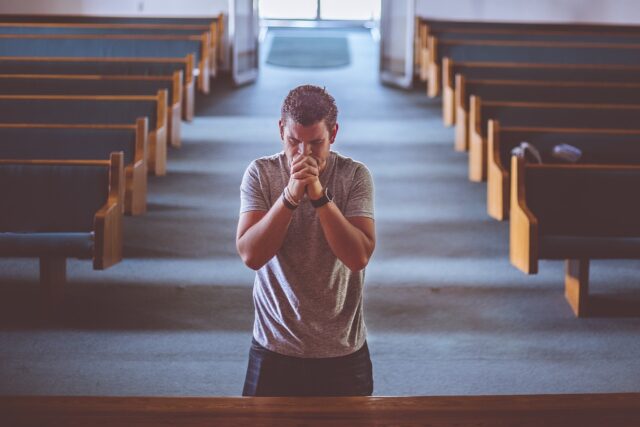 Source: Unsplash
Source: Unsplash In many religions, God communicates with humans through intermediaries like priests, prophets, or holy texts. But why can’t God just speak directly to each person? If he wants a personal relationship with every human, why does he need a middleman? It seems inefficient and prone to misinterpretation. Couldn’t an all-powerful God find a way to get his message across without relying on fallible humans to do it for him?
12. How can you justify the terrible things that have been done in the name of religion throughout history?
 Source: Unsplash
Source: Unsplash Religion has been used to justify all sorts of atrocities throughout history, from the Crusades to the Spanish Inquisition to modern-day terrorist attacks. How can you reconcile the idea of a loving, moral God with the evil that has been done in his name? Even if you argue that these people were misinterpreting religious teachings, doesn’t it suggest that religion itself is inherently dangerous and easy to twist for nefarious purposes?
13. Why do you think your religion deserves special privileges or exemptions from laws and social norms?

Many religious groups demand special treatment or exemptions from laws and social norms, such as allowing discrimination against LGBTQ people or permitting parents to withhold medical treatment from their children in favour of prayer. Why should religious beliefs be given this kind of special status? Shouldn’t everyone be held to the same standards of ethics and responsible behaviour, regardless of their faith?
14. How can you believe in a loving God who would send people to hell for eternity?

The concept of hell as a place of eternal torment for non-believers or sinners is a common one in many religions. But how can you reconcile the idea of a loving, merciful God with one who would consign people to suffer forever? Doesn’t that seem excessively cruel and vindictive? Wouldn’t a truly benevolent God find a way to save everyone, or at least not create a horrible place like hell in the first place?
15. Why do you think faith is a virtue?

In religious contexts, faith — belief without evidence — is often upheld as a virtue, something to be admired and cultivated. But why is that? In any other area of life, we expect people to have good reasons for their beliefs, and we’re critical of those who believe things without justification. So why is religion an exception? Why is it considered noble to believe extraordinary claims without extraordinary evidence?
16. How can you have a fulfilling life without the promise of an afterlife?

For many religious believers, the promise of an eternal afterlife in heaven is a major motivator and source of comfort and meaning. As an atheist, I don’t believe in an afterlife — I think this earthly life is all we get. How do you think that affects my ability to have a fulfilling, meaningful existence? Do you think it’s possible to find joy, purpose, and morality without belief in God or heaven?
17. Are you open to changing your beliefs if presented with convincing evidence?

This is perhaps the most important question of all, the one that gets to the heart of intellectual honesty and openness. If you were presented with strong evidence that contradicted your religious beliefs, would you be willing to change your mind? Or are your beliefs unfalsifiable, immune to any kind of counterargument or proof? Being open to changing our minds based on evidence is a key part of critical thinking and truth-seeking.




